Should I Buy a New or Used RV? The Pros and Cons
Congratulations! You’re thinking about buying an RV. This is an exciting time. There are so many types, sizes, and features to consider. First things first, should you buy a new or used RV?
Let the decision-making begin.
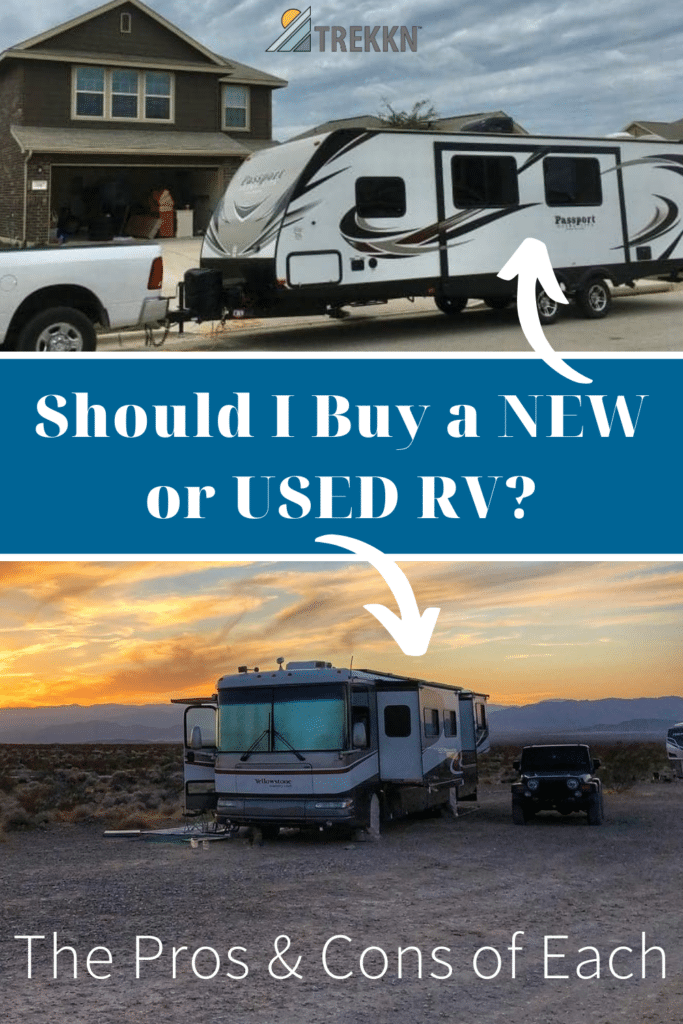
There are many, many factors to consider. Towable vs driveable, new vs used, solar-ready or not, fully equipped for boondocking or basic setup. And the list goes on….
But today we’re going to focus on the pros and cons of buying a used RV (vs a new one).
Personally, I’ve owned both new and very used RVs. I’ve owned three travel trailers, two of which were new. I had a campervan which was a new vehicle that we built out ourselves.
And I currently have a 20-year-old motorhome that powers our full-time RV adventures around the continent.
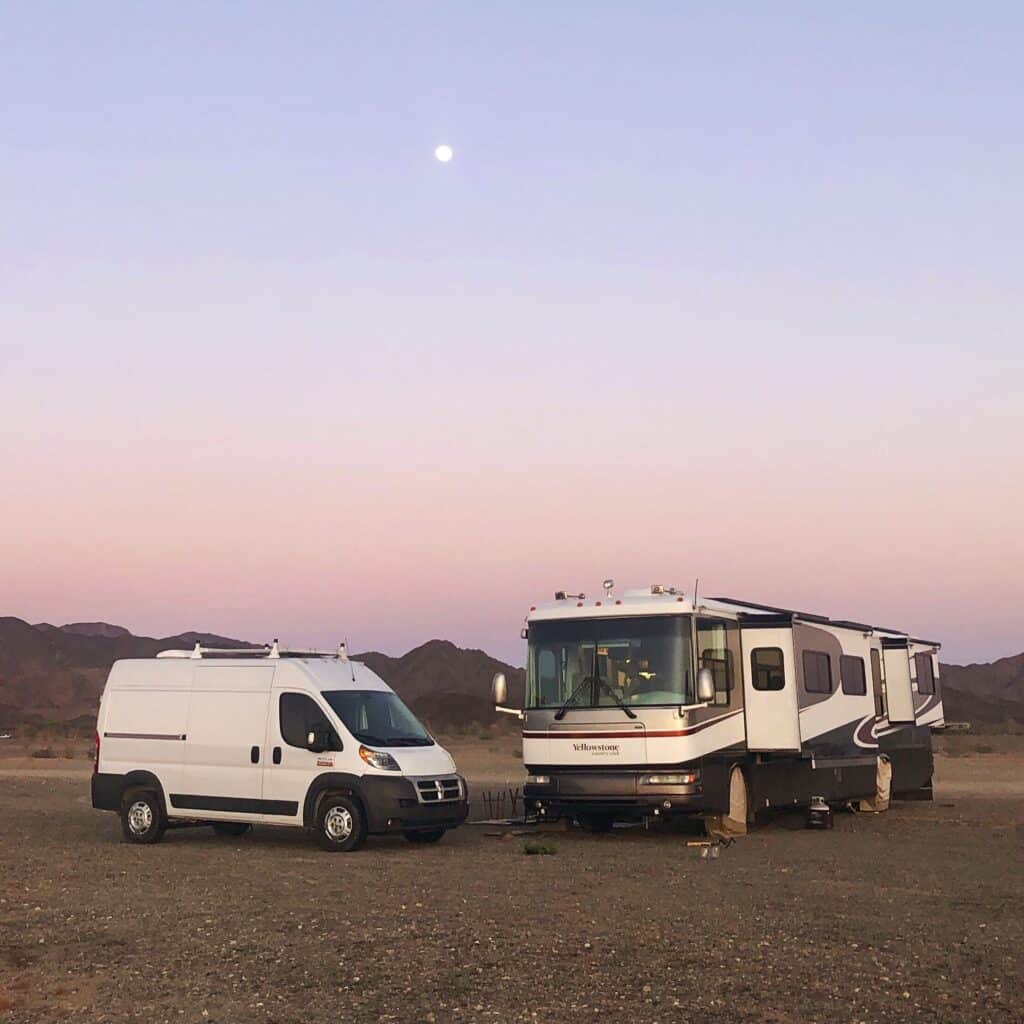
You might wonder why people buy RVs brand new when they depreciate immediately. I’m with you, I like a good deal. I like a smart purchase.
But in my experience, once you’ve had an old RV let you down, you’re looking at new RVs pretty darn quickly.
There is something to be said, after all, for the price one is willing to pay for some peace of mind.
Is Buying a New RV a Good or Bad Investment?
As with anything in life, your circumstances, values and priorities are going to inform what makes a “good” decision or investment for you.
So I’ll avoid speaking in generalities or assuming what’s best for you. Instead, I’ll share with you my own experience.
I hope there is something to be learned from my RV-buying journey. May my pain help you avoid the same!
My personal experience buying my first RV
When I was brand new to RVing, I bought a used travel trailer for $9,000 from a local dealership.
I walked onto the lot, toured the available inventory, and picked one that day.
This was the poorest RV decision I ever made because it was the first, and the most uninformed.
I said to the dealer, “it looks like water damage up here on the ceiling” and he said, “I just had the tech inspect that and there is no water damage” (a blatant lie).
But what did I know? I was new to this whole RV thing and was more focused on the excitement than the reality down the road.
When water poured through the ceiling during the first bad rain storm (as you obviously knew it would), I was over 3,000 miles away from where I had purchased the RV.
I had the RV shipped back to the dealership and demanded a refund. Then, I purchased a new RV.
And in this case, my new RV was a much better investment than my janky, leaky, used RV.
But enough about me, let’s explore some of the pros and cons of buying new vs used.
Pros of Buying a New RV
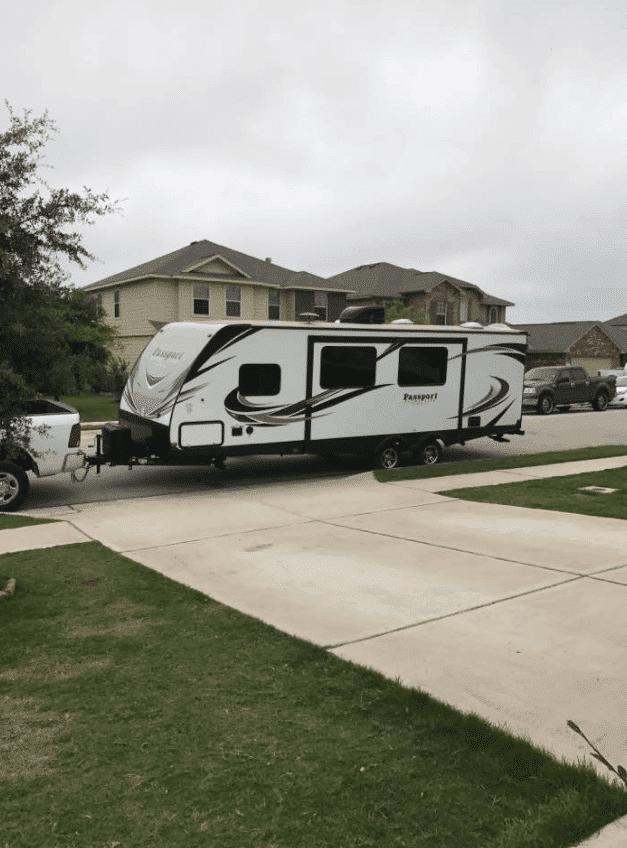
WARRANTIES – A new RV generally comes with a manufacturer’s warranty that will cover certain things going wrong for a year or two. Plus, you typically get the option to purchase an extended warranty for an additional three to five years of coverage.
UNTOUCHED EVERYTHING – No previous owner means no smells, no mess, and the toilet has never been used! For some buyers, this is reason enough to buy new.
GET WHAT YOU WANT – Buying new means you can choose the exact model you want. You can sometimes even custom order your RV with personalization from color to cabinet material. (Hopefully, this means that you won’t need to do any renovations when you receive your RV.)
FINANCING – Most buyers will need to finance a new RV, but luckily being new it usually comes with better terms (APR, loan length, etc.) and possibly a lower payment than a used RV. It’s often very simple to set up through your dealership.
WELCOME EVERYWHERE – If you buy new, you can rest easy knowing you can take that RV just about anywhere. Many RV resorts have a 10-year rule and don’t accept RVs older than 10 years old.
If you buy new, no RV park will turn you away for the age of your RV for 10 years. One less thing to worry about.
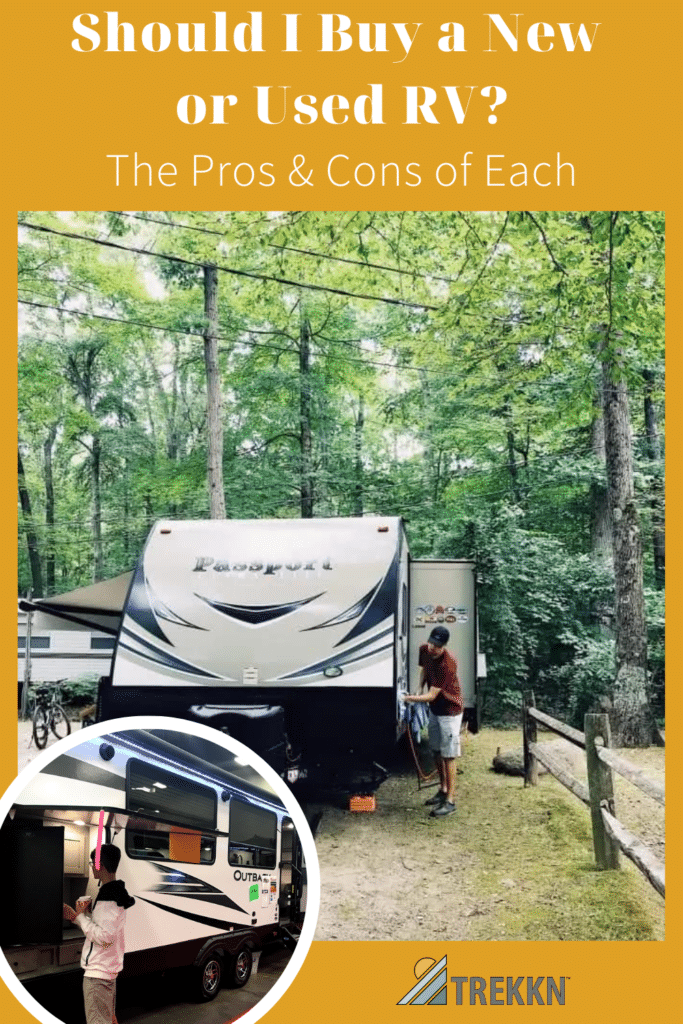
Cons of buying a new RV
PRICE – A new RV is the most expensive RV you can buy. In addition to the price tag, you’ll pay more for taxes, registration (in some states), and insurance.
DEPRECIATION – What’s worse is that the value of that new RV depreciates greatly over the first year or two that you own it. If you don’t think you’ll keep your RV for more than a couple of years, buying new may not be the best choice for you.
SHAKE DOWN – Every new RV needs a “shake-down” cruise. You will almost always come across issues in the first few months of ownership that you will have to address. It will be helpful if you are near your dealership to get warranty work completed.
It will also be helpful if you are not needing to use the RV when it needs to go to the shop. So if you’re planning to buy a brand-new RV and set off on a cross-country road trip or full-time adventure, be aware of this consideration.
Pros of buying a used RV
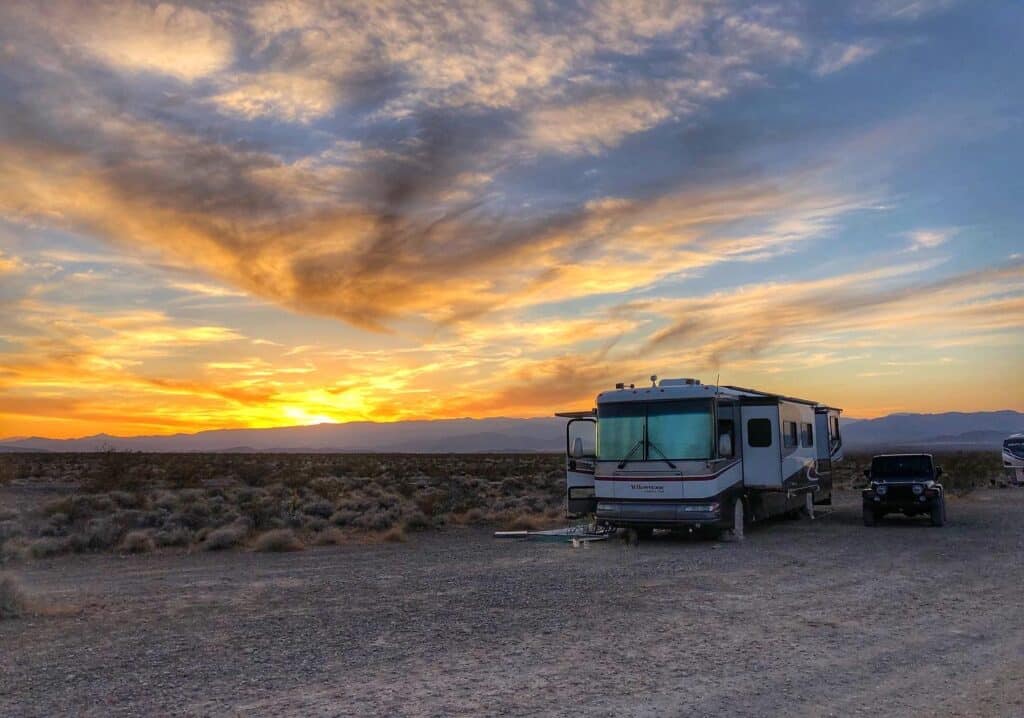
COST – Used RVs were selling for (unreasonably) high prices during the huge surge in RV interest of 2020-21. But generally, you can find someone willing to make a deal on a used RV.
RESALE – You should experience less depreciation on a used RV if you maintain it well. This means if the specific type of RV doesn’t work well for you, you can re-sell it, possibly without losing your shirt.
PRE-LOVED – Hopefully you’re buying from someone who took great care of the RV, and they’ve already done the shake-down trips. Potentially they’ve even made some upgrades or improvements to the RV that you get to benefit from without directly paying for it out of your pocket.
INSTANT GRATIFICATION – You can buy it today. The RV is physically sitting on the lot, available for you to drive away with. Many new RVs come with a long timeline for delivery. If you’re ready to start your adventure right away, used may be the way to go.
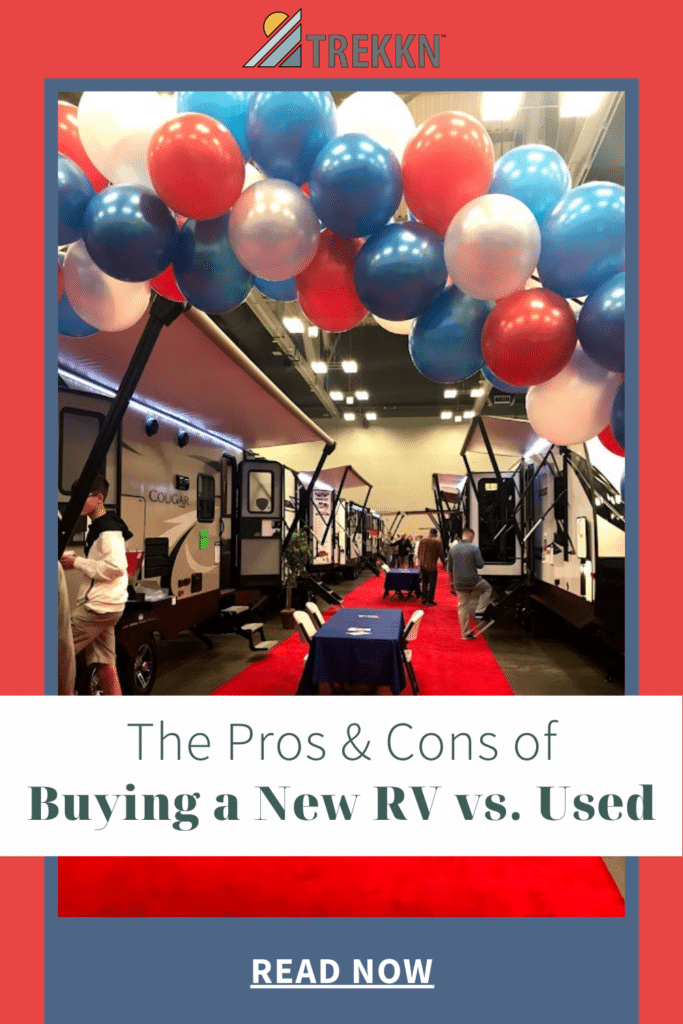
Cons of buying a used RV
NO WARRANTIES – If something major breaks on your first RV trip, the full financial burden of fixing it is on you.
PARTS & SERVICE – If your make and model of used RV is no longer in production, you could have a harder time finding parts and getting service done on your specific RV. It might also be more expensive.
NOT ACCEPTED EVERYWHERE – Due to the 10-year rule mentioned above in the pros for buying new, the downside of buying an older used RV is that some RV parks may not accept you.
This is an important consideration to be aware of. But in our experience, we’ve only been denied at a handful of parks. And we have always been able to pretty easily find something else in the area. So in my opinion, this is not a deal breaker.
UNKNOWN HISTORY – You are probably buying some unresolved and unforeseeable issues when choosing a used RV. There is an unknown history, and the older the RV, the longer the list.
The previous owners of our Class A motorhome installed new flooring. This felt like a bonus when we toured the RV. But after much use, we have had issues with our slide because it “clunks” coming in and out due to the aftermarket flooring install.
TIRES – This is a serious consideration whether you are purchasing a drivable motorhome or a towable (fifth wheel or travel trailer). A new RV comes with new tires. But a used RV might come with some very old tires.
As the old adage goes in the RV world, your tires are more likely to age out than wear out. This was true on our motorhome we bought used, and we asked for a concession on the sales price to cover new tires.
The previous owner would not agree to drop the price because the tires only had 20,000 miles on them. Again going back to that “unknown history”, we didn’t feel comfortable driving on the existing tires.
They were 15 years old and we had no way of knowing if they had been covered or stored indoors, etc. So we paid $3,500 for new tires the same day we bought the RV. (Yeah, ouch.)
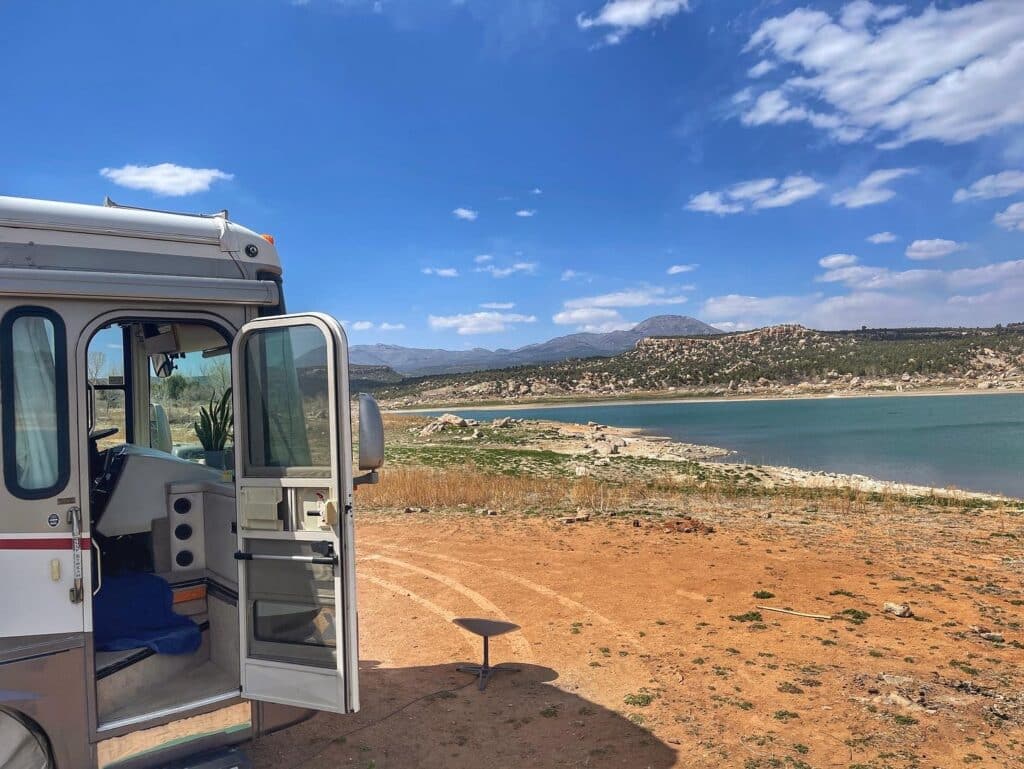
What mechanical things should be checked when buying a used RV?
In my opinion, whether you’re buying new or used, you should have a pre-purchase inspection. Obviously, this inspection becomes more important when buying used.
If you’re buying your first RV, we recommend that you take an experienced RVer along with you when making your final choices.
Doing an informal inspection of your own along the way will help you from falling too deeply in love with the wrong RV. (It happens, trust me.)
Common issues to watch for include: water damage (and resulting mold), physical damage (like from an accident), roof integrity (a biggie for sure), batteries, and tires (check those manufacture dates).
If there are slides, check the operation of each slide. Air conditioning units? Check that they function properly.
And if there is a propane (LP) refrigerator, check the outside panel to ensure good working order and proper maintenance.
Those are just a few of the most crucial items, but a full RV inspection will go much further.
What should people know before buying an RV?
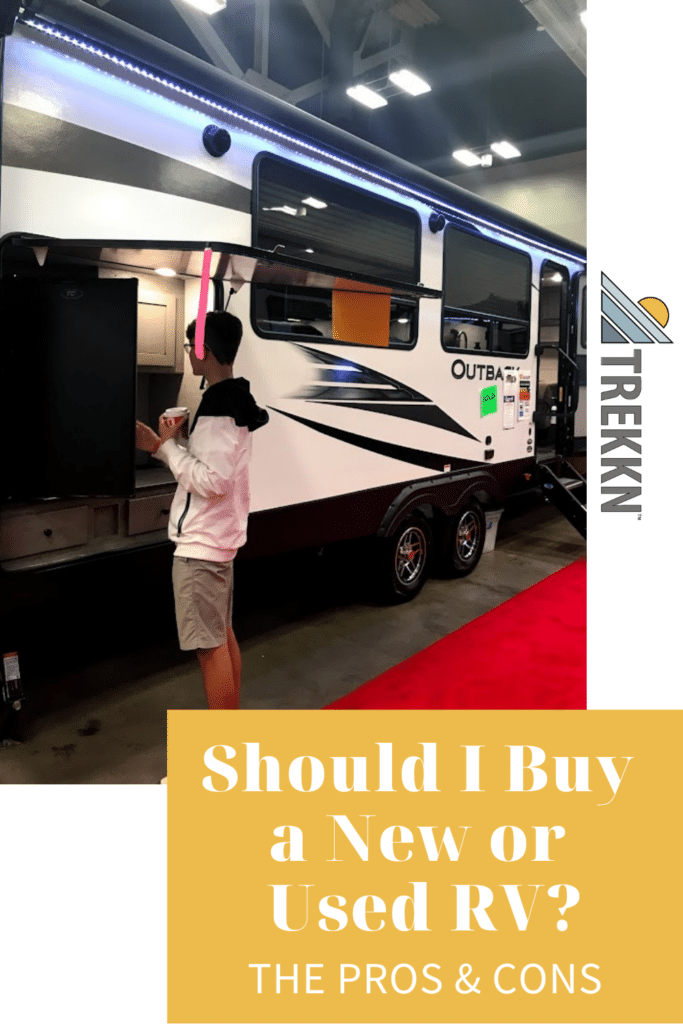
Before choosing the RV that’s right for you, new or used, it’s important to know how you’ll use it. Are you going to live in it? Is it just for weekend getaways near home? Are you planning to drive cross country? What size vehicle are you comfortable driving?
This way, you can make your best effort to get it right the first time. But as it often goes with RV shopping, you might have to try one out to realize what you actually want.
So…should you buy a new or used RV? I always recommend friends and family buy a used RV as their first RV.
Why? Because it’s very likely they’ll be trading it in within the first year for a better fit.
But if this is not your first RV and you know that new is right for you, go for it. My new RVs never disappointed me.
Whatever you buy, know the purpose and intention behind the purchase, and remember that you get what you pay for.
Our 20-year old motorhome is the most expensive (and oldest) RV I’ve ever owned, and it’s also the nicest, most solidly-built one. So age is just a number if something was built to last.
Happy RV shopping and adventuring!

Kristen Bates lives & works from her RV, primarily boondocking off-grid. She owns and operates a women-led travel company, Legit Trips. Kristen loves to explore new places and inspire others to do the same. If she’s not typing away on her laptop, she’s off on an adventure- hiking, biking, or SUP boarding. You can follow her RV adventures @PerpetualMoves and learn more about her travel company at LegitTrips.com.


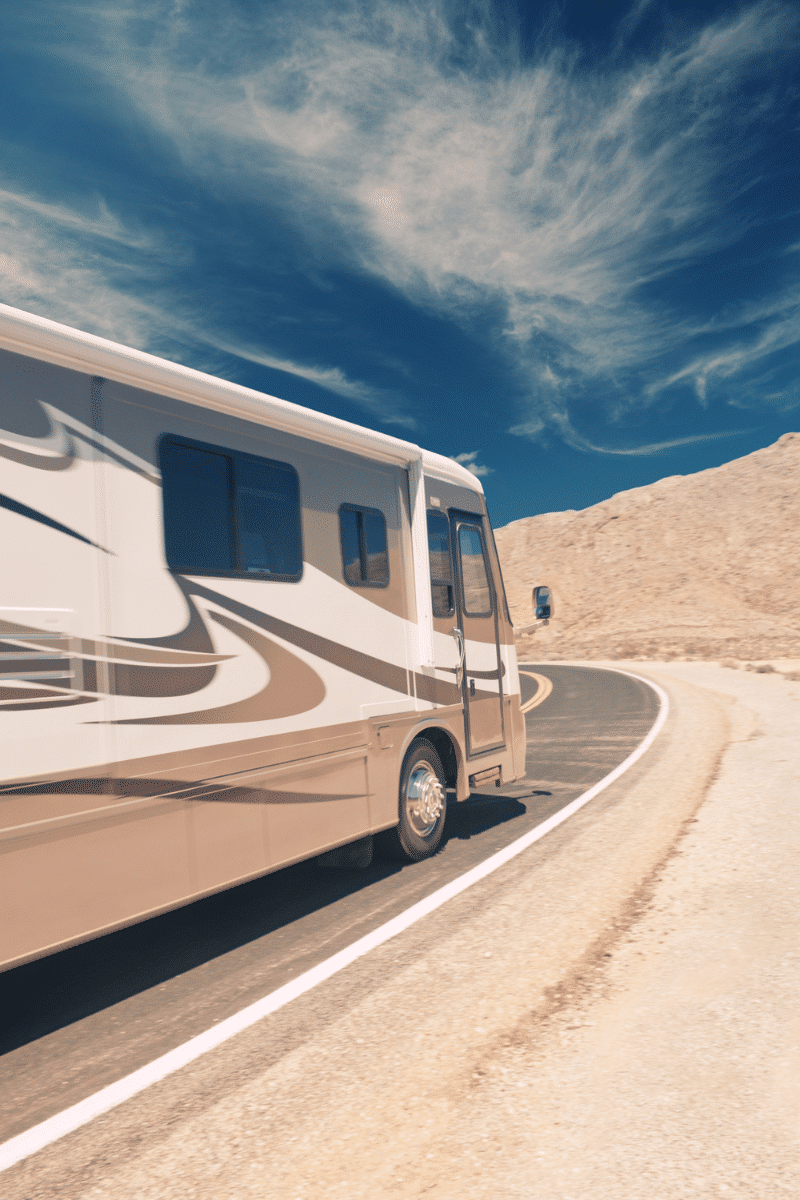
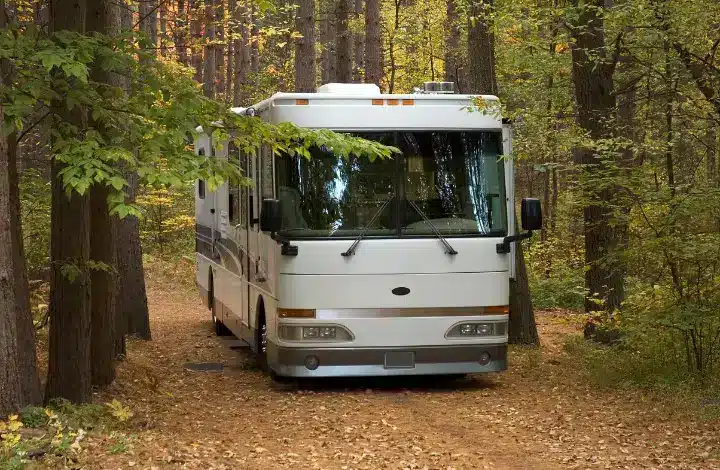
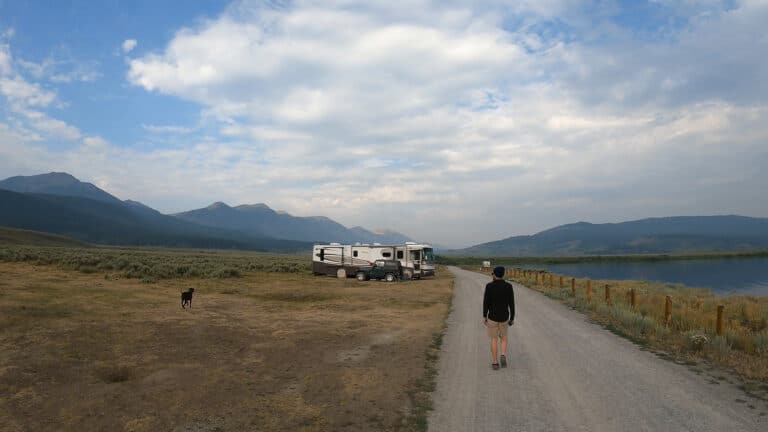
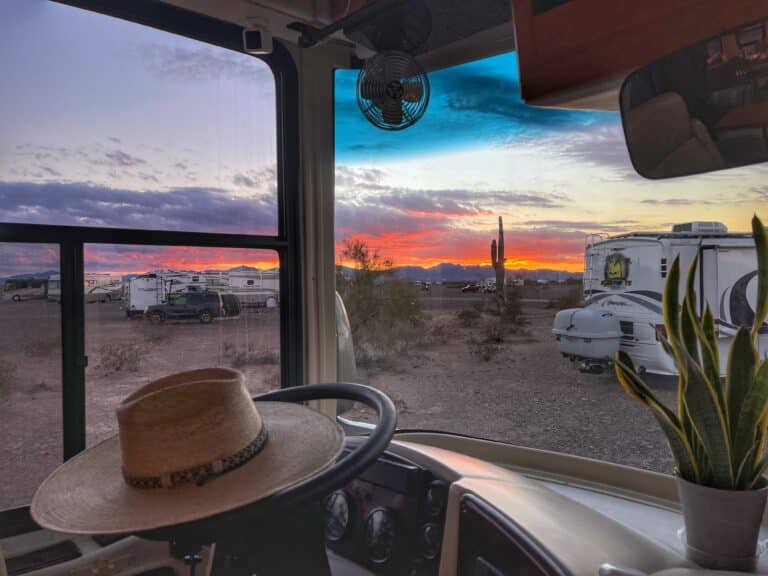
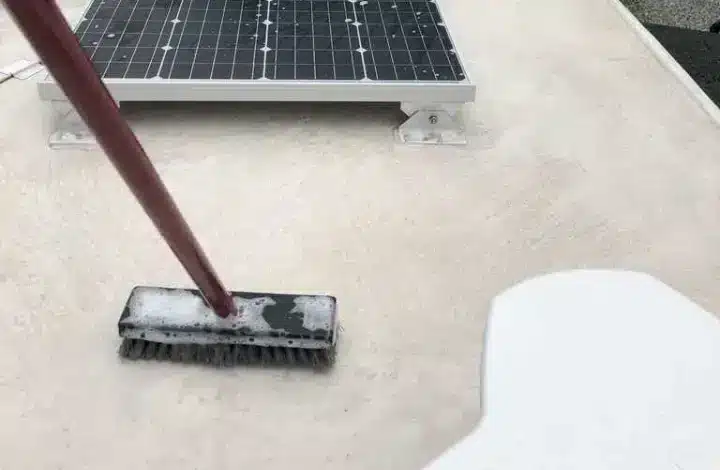
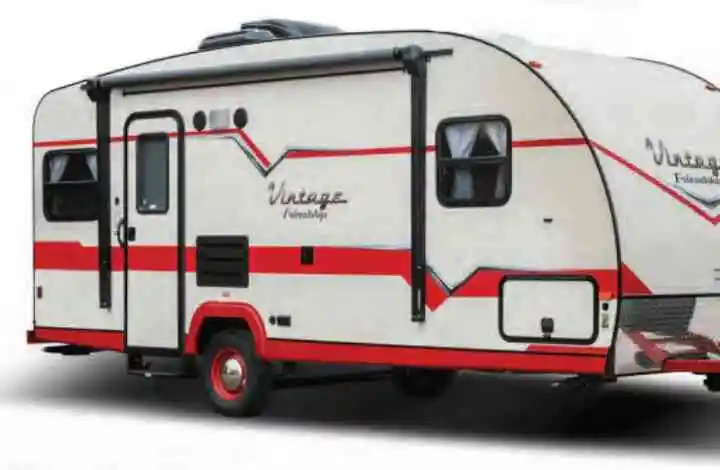
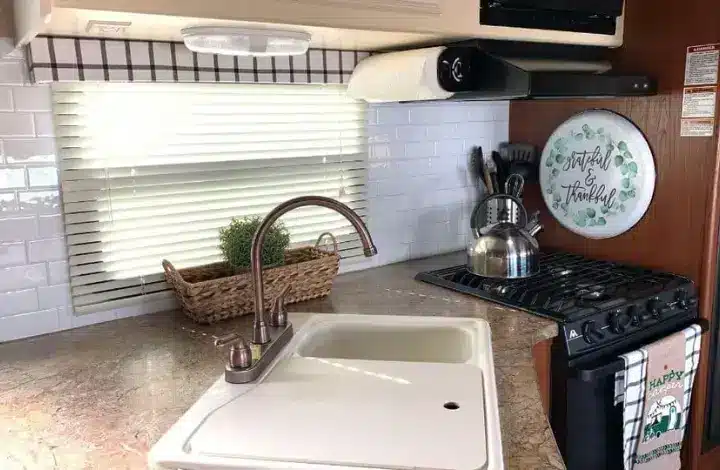
Is Buying a New RV a Good or Bad Investment? This is a “bull **** question”.
If you want an investment, buy a house.
RVs are definitely NOT an investment, they are fun toys and can provide a lot of good and bad experiences. Actually, you’ll probably remember the bad experiences longer than the good ones ( LOL).
Try and have a good sense of humor when you purchase an RV, you’ll need it.
Time is something you can’t replace and you can’t take it with you, so, if you want the experience of owning and using an RV, go ahead and buy one.
Yes, it’s all expensive, but, buying a brand new one is the most expensive way to go.
Even with repairs, the first few years of depreciation on a brand new RV will rival any repairs you have to make on a used rig. Depreciation can be as much as 30 percent in 5 years.
And, don’t think that you won’t have issues with a brand new RV… they all do, and service is the name of the game. Your warranty is only as good as the dealership.
Remember that price is only one factor in a transaction. Can you work with these people?
If you’re on a budget, don’t buy a Mercedes Benz. A gasoline vehicle is going to be less expensive.
Good luck.